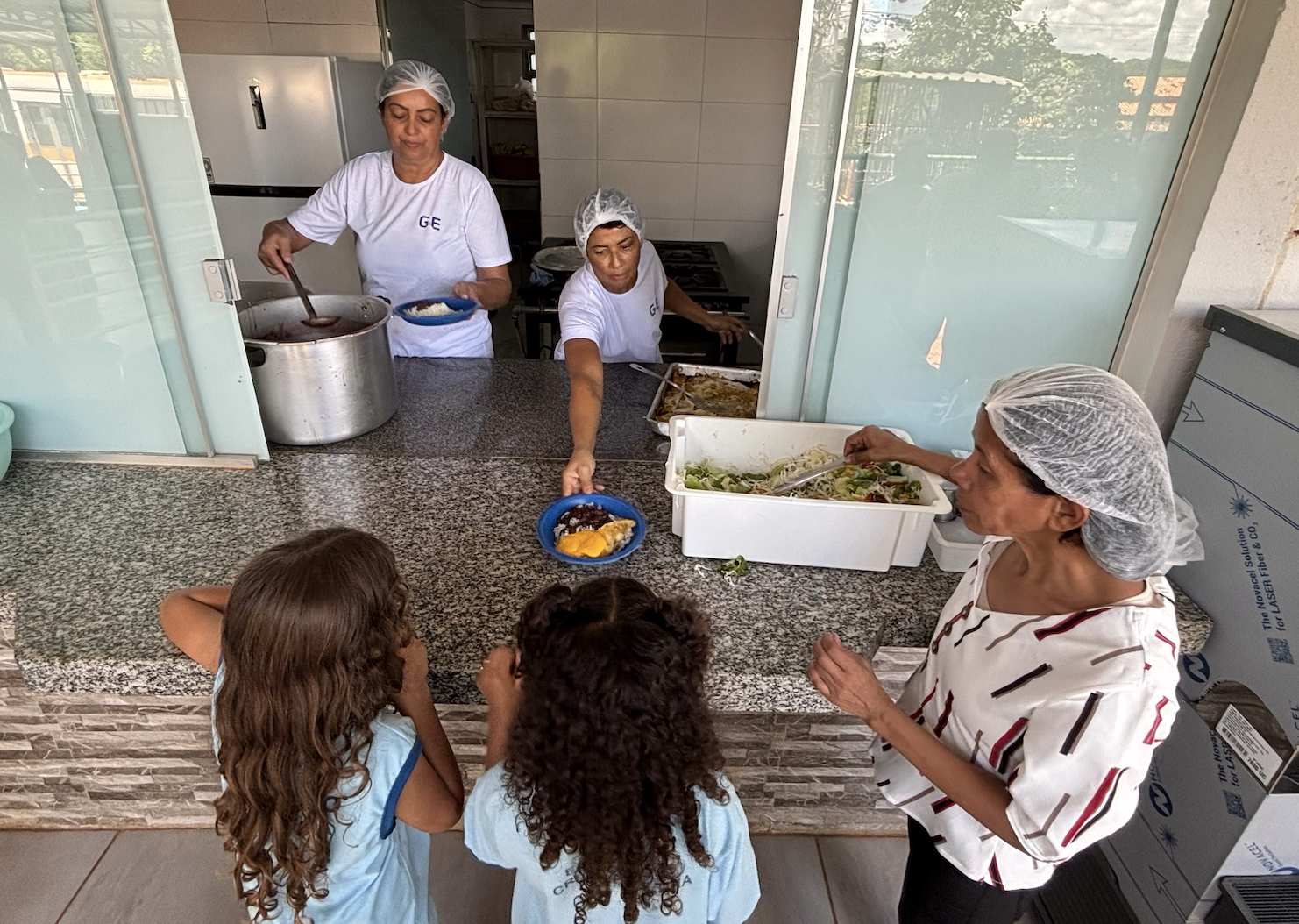
On 31 March 2025, the National School Feeding Programme (PNAE) celebrates its 70th anniversary. The PNAE plays a fundamental role in promoting food and nutritional security for millions of students across the country. Created in 1955, the programme aims to guarantee the right to healthy food for basic education students.
With a service network that reaches more than 40 million children, adolescents, young people and adults, the programme provides balanced meals in public schools, contributing to students’ learning and development. In addition, the PNAE stands out for its support for family farming, with the purchase of food directly from small producers, which strengthens the local economy and promotes sustainable agricultural practices.
A model
The programme is considered a model, shared by Brazil through South-South cooperation actions. The WFP Centre of Excellence against Hunger in Brazil, which promotes policies to combat hunger through technical cooperation, organizes study visits for delegations from countries in the Global South to exchange information on school feeding and learn about the PNAE model.
“The PNAE is a public policy that guarantees food and nutritional security for children and adolescents as well as young people and adults in Brazil. It is a model to be disseminated, as the right to healthy and adequate food is a fundamental pillar for the integral development of each student,” says Sineide Santos, Programme Nutritionist at the WFP Centre of Excellence against Hunger in Brazil.
School cooks
Sineide is also responsible for coordinating the Reality Show Vida de Merendeira in partnership with the National Education Development Fund (FNDE) and the Brazilian Cooperation Agency (ABC). The reality show is an initiative that highlights the work of these women and men who, with creativity and commitment, prepare daily menus with healthy food for thousands of students.
“The school cooks play a fundamental role in the success of the PNAE. Together with the nutritionists, they are responsible for ensuring that students receive nutritious, quality meals,” she says.
Sineide emphasises that these professionals, who are often invisible in everyday school life, should have their skills and dedication valued. “The programme exists for this purpose. It shows the stories and daily challenges of school cooks and emphasizes the importance of work that goes beyond simply preparing food, valuing the role of these professionals in preparing quality school meals that respect the cultural characteristics of each region.”
The new edition of Reality Vida de Merendeira is scheduled for the second half of 2025.




